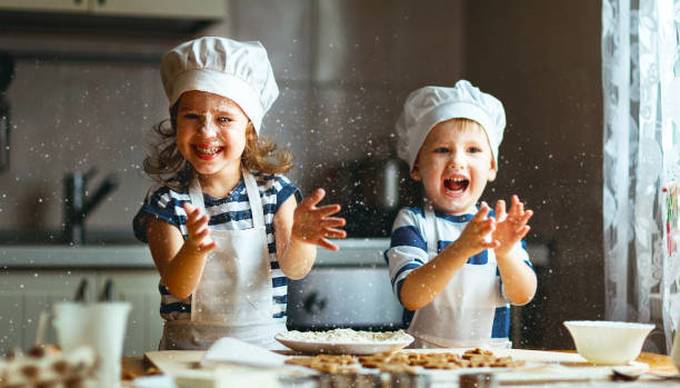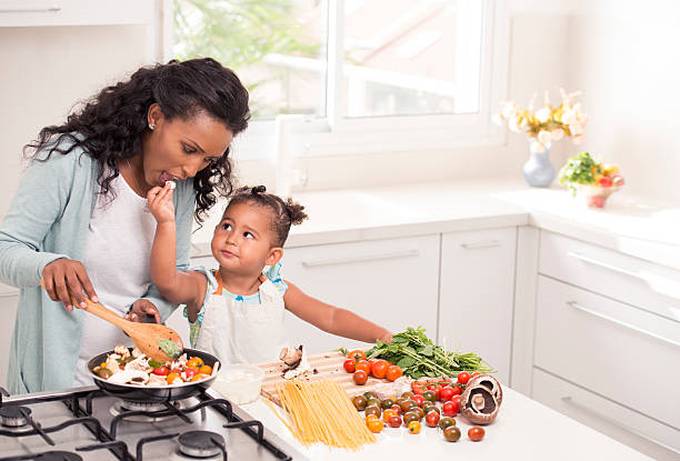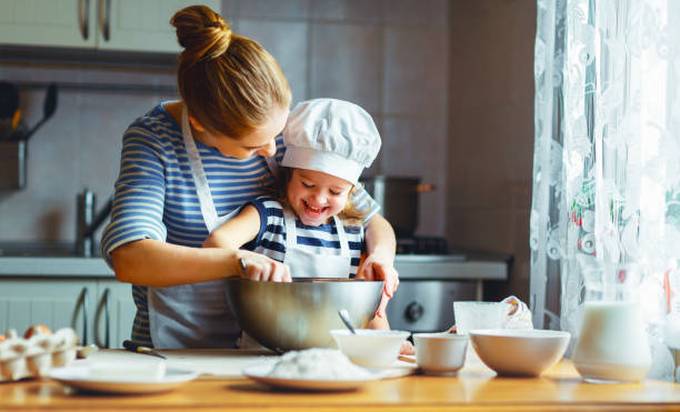
Any parent would love to see their children grow into self-sustained and healthy people. To manage this, a lot of the work you put in will be about sowing seeds of inspiration – turning their heads in a certain direction, if you will. It’s a tender process that required careful attention not to tear down what you’ve already built; many parents before you have been in despair over a teacher’s ability to ruin their little one’s interest in mathematics and languages by turning the learning into a choir.
A brilliant teacher can further their interest and boost their creativity, making the learning process playful and intriguing. You are your children’s very first teacher and lay the foundation for how interested they’ll be in cooking.
Push them and they’ll run in the opposite direction – or find back to their long-forgotten interest in years from now, quietly resenting you for making them dislike it in their youth.
Kitchen safety first
Before you invite any eager children in where it’s cooking, splattering and bubbling all over the place, you’d want to run a safety check first. The most important thing you can do is obvious and lives in your bones from the moment you became a parent: supervise any small hands in the kitchen and make sure they’re clean.

Don’t leave them alone when something hot is going on, turn all the handles of pots and pans inwards so that nobody bumps into anything, and clean up any spillages on the floor instantaneously. Find the best tile floor vacuum and make it your dearest kitchen friend – you’re going to be using it a lot to keep everything neat and tidy.
Get them involved: plucking and mashing
It’s an astonishing amount of people who claim they can’t cook. It’s a basic survival skill and being unable to cook a sustainable meal is borderline ridiculous to any functioning human; imagine how the rest of the pack would laugh at you if you were a wolf who couldn’t hunt. Not only would it be impossible for you to survive but the others would find you to be a useless contribution as well; finding food, cooking, and eating is a social activity as much as a vital life skill.

Do your best to involve your young children in the kitchen. They’re never too young to be in there with you, observing, and getting a taste of the kitchen as a social place. From around eighteen months, your little chef will be able to sit happily in their chair and mash a potato or tear a few herbs into pieces.
You’d want them to get close with the food from an early age, and it seems almost unnatural for a toddler not to be familiar with the pleasant aroma of herbs on their tiny finger. When they’ve grown into young preschoolers, you can teach them to handle a soft plastic knife and slice mushrooms.
Although it feels good to make them help you with the cleaning, beware of assigning them the jobs you hate; there is no better way of making your kids dread their time in the kitchen more. Give it a layer of positivity instead and tackle the cleaning together.
